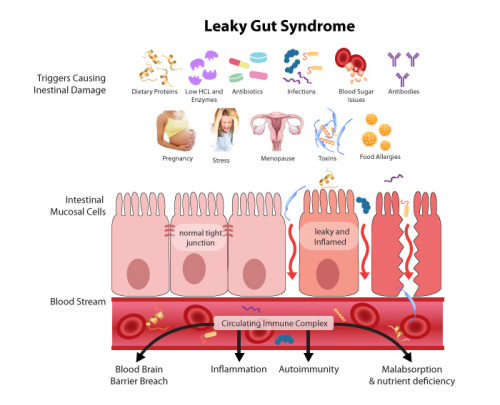Dr. Joan Delyse Waters
Northern Colorado's and Northern Texas's naturopathic gastroenterologist providing both in-person and virtual care in Northern Texas and Northern Colorado, and virtual care in other areas of the Midwest. Dr Waters is also a certified mold-literate doctor.
Call 970-482-2010 or email info@practicalhealthsolution.com to schedule an appointment.
Dr Waters has 2 part-time offices: 1101 E Ellizabeth St Fort Collins, CO 80524 and 353 Keller Parkway Keller, TX 76248.
If you are unsure of whether Dr Waters is allowed to provide service to you, please call 970-482-2010, and we will determine
whether is she is. If not, we will refer you to another naturopathic doctor in your area.
Healing Leaky Gut

Leaky gut, known in the research as intestinal hyper-permeability, is a condition in which the small intestine is more permeable to large proteins than is usual. It occurs when there has been gut inflammation for an extended period of time. The tight junctions between the cells in the intestines become loose, allowing larger proteins to pass into the bloodstream. The immune system, then, identifies these proteins as foreign and mounts an immune response to them. Antibodies are made and each time the person eats that food, the immune system reacts to it. This is a common cause of multiple food sensitivities. Leaky gut can also cause other symptoms such as brain fog, excessive fatigue and arthritis or joint pain. Their is a correlation between leaky gut and autoimmune conditions, although the exact mechanism by which auto-immunity develops is unclear.
Food sensitivities may cause symptoms within hours of ingestion of that food and up to three days later. For this reason, the patient is often not aware of all the foods to which they react. Food sensitivity and allergy testing is an important part of the leaky gut repair process because it enables us to identify all the foods which are inflammatory to any given patient.
First, I identify the source of inflammation that caused the leaky gut in the first place. This could be a gluten sensitivity in a person who still consumes gluten, one who eats foods to which they are allergic or sensitive, Crohn's disease, small intestinal bacterial overgrowth (SIBO) or any other inflammatory condition of the small intestine. Once we identify the source of inflammation, I treat the cause, and then we begin the gut-healing phase.
I test for food allergies, food sensitivities and gluten sensitivity. With this information, I come up with an individualized gut-healing diet that requires also the avoidance of all foods to which the patient is allergic or sensitive. The patient will need to stay on this diet for several months to cut down the inflammation in the gut and to provide the body with the nutrients it needs to heal. If necessary, I will prescribe a probiotic to restore balance to the patient's flora which, in itself, will contribute to healing the gut. I may also prescribe gut-healing herbs and/or nutrients if that patient has symptoms consistent with malabsorption.
After I determine that the gut is healed, we will either retest for food sensitivities or the patient will add back foods, one at a time, four days apart, keeping track of any adverse reactions they may experience. The patient will wait a few days after each adverse reaction, before they will attempt to add in another food. They will continue to avoid all the foods to which they had an adverse reaction. They will continue this process until they have added in all the foods that they typically eat. They may continue to avoid the offending foods for a few more months, then try adding them back in again or they may do food allergy and food sensitivity testing again. If they continue to react to a certain food, they may have a true allergy (IgE reaction) to that food, rather than a food sensitivity due to leaky gut. In the case of an allergy, the food must be removed from their diet.
Healing leaky gut is not as difficult as resolving food sensitivities, but they can both be accomplished with a lot of diligence and tenacity.

